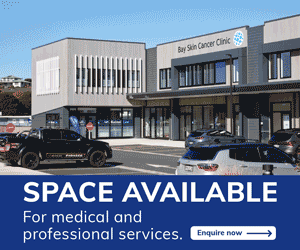The way we access and use workplaces was already undergoing change prior to the pandemic outbreak, but the global health crisis accelerated some of those trends in the office sector.
Advances in technology, a more diverse workforce, a flight to quality, the importance of global marketplaces and changing expectations around property requirements, were all having an impact on the space that companies and office-based operators were committing to.
There was never a “one size fits all” template in the office market, however what is becoming clear is that businesses that embrace new ways of working, are flexible, and leverage technology, will thrive in the post-Covid economy.
The work-from-home mandate saw office workers plugging in from widespread locations, and since then, there has been serious reconsideration about where employees could be based going forward, with CBD premises not necessarily being the sole answer.
This emphasis on having a more distributed workforce is a trend being seen globally and in New Zealand, as corporates and larger businesses opt to positively fragment their physical space footprint beyond the usual centralised head office model.
Lloyd Budd, Bayleys’ director Auckland Commercial & Industrial, believes that the way offices are designed, how occupancy costs are approached, and this evolving distributed workforce model will structurally change office space dynamics and the suburbs will take on new meaning.
“Larger companies and businesses with scale are proactively looking to the core + flex model of office space with a consolidated central location supported by smaller satellite flexible spaces in the suburbs that can expand and contract to cater for varying staffing and work flows.
“Those businesses with a core + flex model in place, will be able to have different teams working safely from different premises for a far more efficient use of time and resources should other disrupting events occur in the future.
“Many office-based businesses operate on a project basis rather than an office hours basis, and so can accommodate flexible ways of working in the suburbs – with one upside being fewer cars making the commute in and out of CBDs.”
Budd says work-from-home as an operational office business model will not become our new workplace normal.
“We are social beings and if we’re isolated in our homes – even with the best technology and support – there’s just not the same capacity to build culture and be inspired.
“Face-to-face interactions drive innovation and connection – video link meetings from home don’t achieve that in the same way.
“There’s also physical work space health and safety concerns, potential for security or confidentiality breaches and likely productivity drains in working from an often-busy home situation.
“I think businesses will have work-from-home as a backup plan and to allow flexibility in certain situations, but not as a broad-stroke mandate.”
Budd says a move to suburban office space in smart mixed-use precincts could see the revitalisation of retail and hospitality in those areas resulting in stronger, more consolidated neighbourhoods where a real village atmosphere prevails.
“Perhaps micro-communities could evolve within a commercial strip or shopping centre with a mix of office space, boutique or niche retail and hospitality such as a whisky bar for after-work drinks, a classy hairdresser or barber premises, a tailor, a farmers’ market-type store with artisan suppliers or the like.
“It’s an opportunity to redefine the look, feel and service offerings that suburban locations offer.”
www.bayleys.co.nz/workplace/industrial/insights/data-centres


















